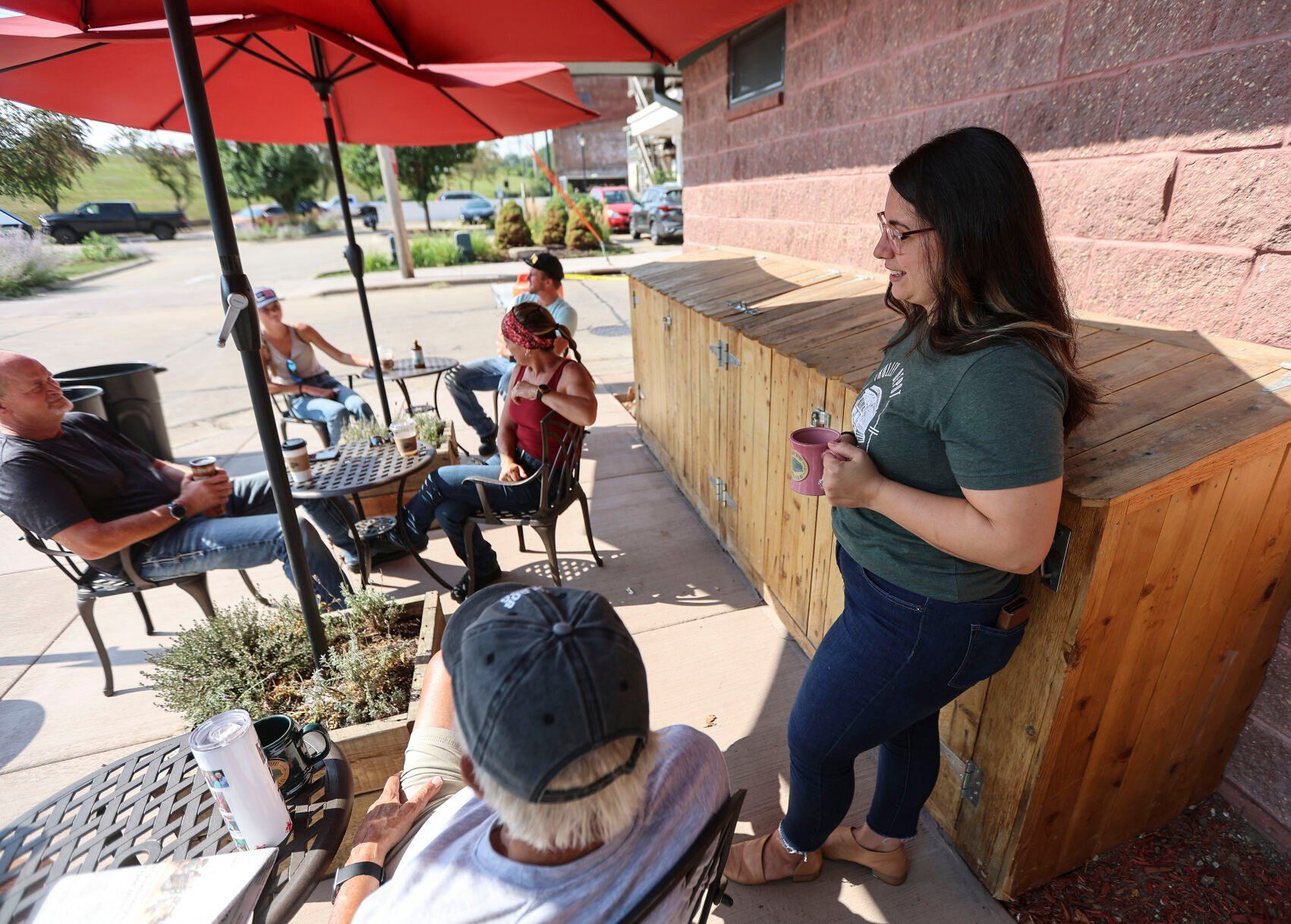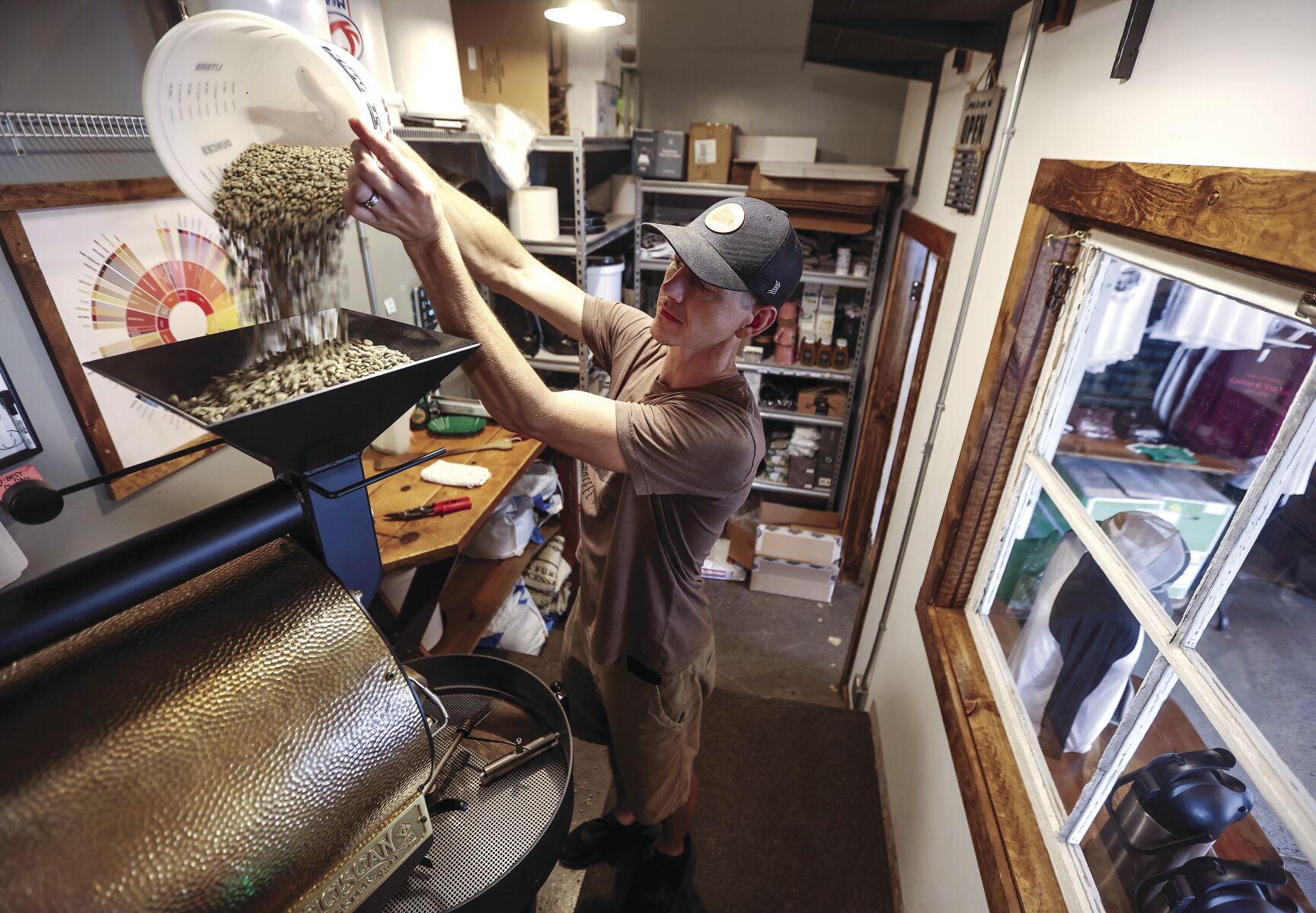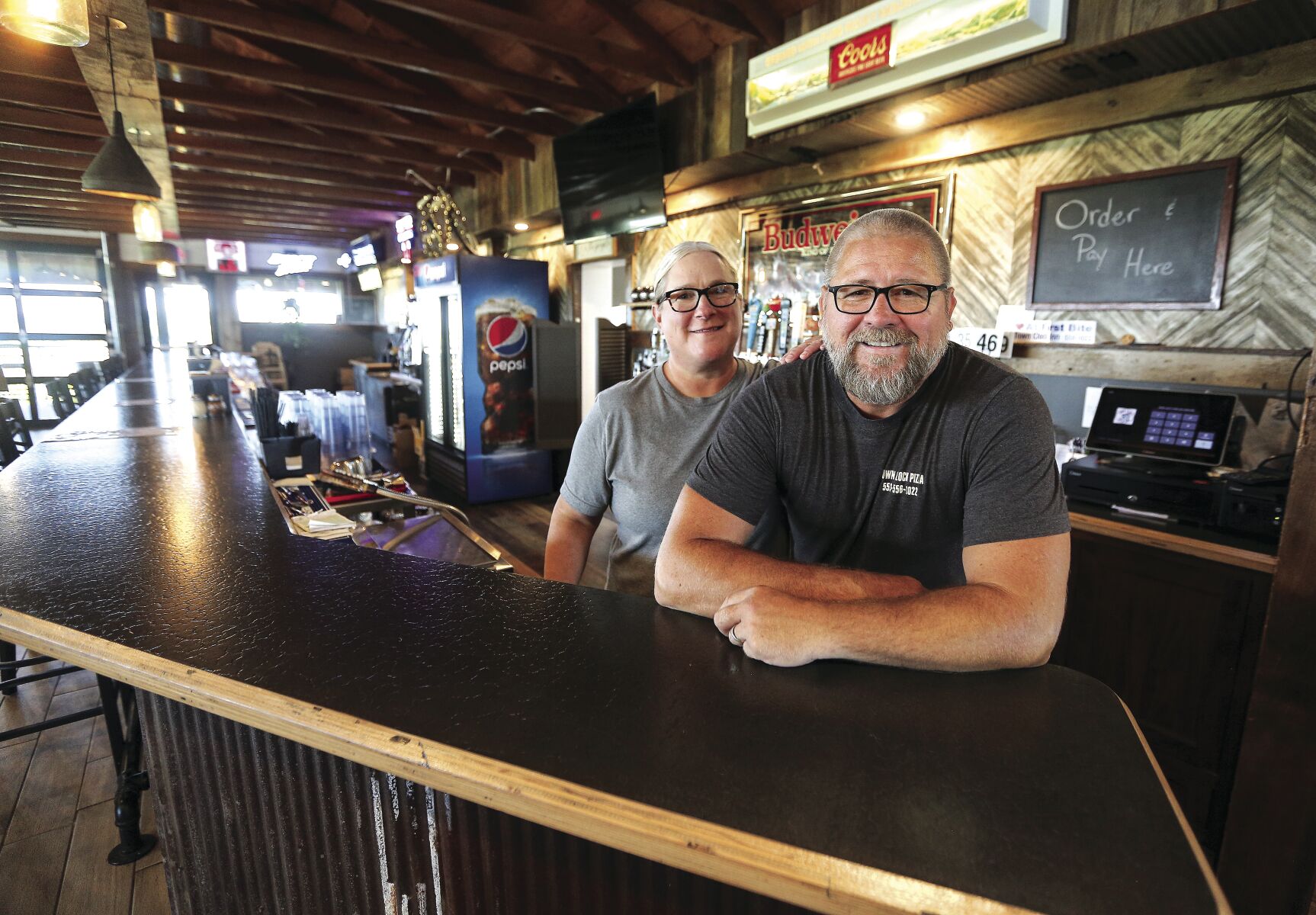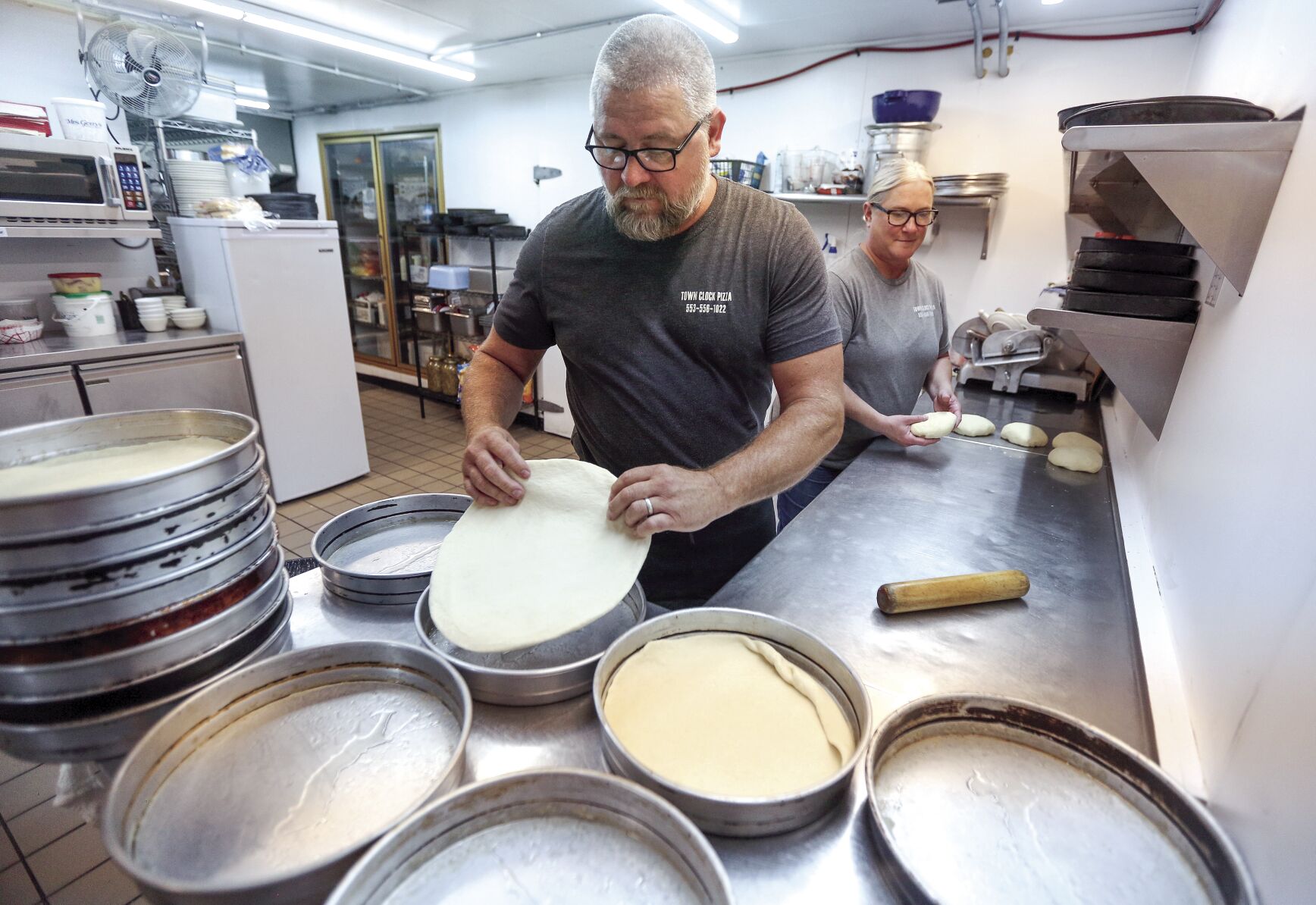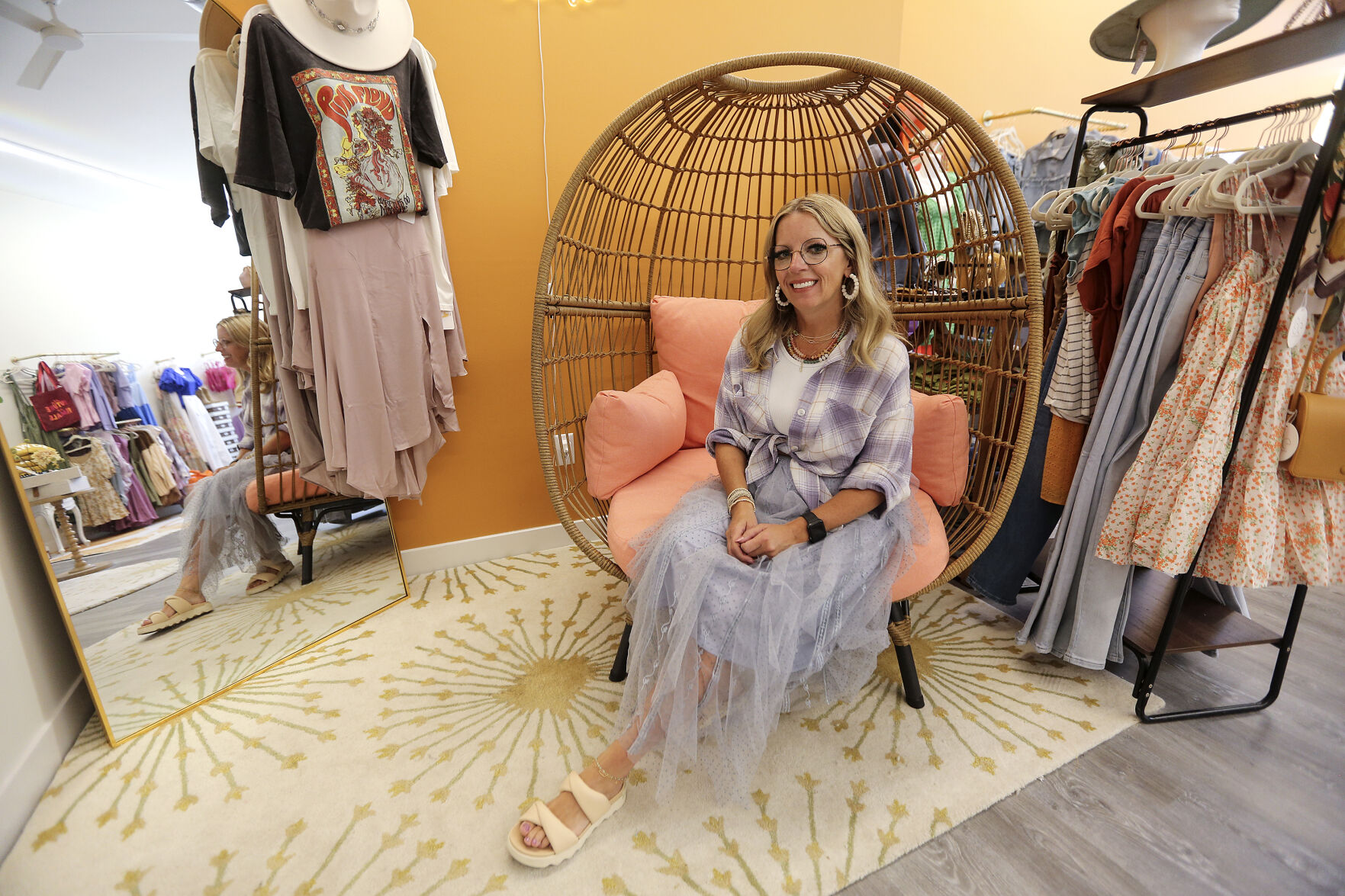After moving back to Galena, Ill., seven years ago, Corey Heller and his wife, Joy, began to think about taking their lives in a new direction.
At the time, Corey Heller was working in construction, and Joy Heller was a stay-at-home mom.
“Ultimately, we didn’t want the lifestyle of him being gone working 60 or more hours a week,” Joy Heller said. “Me being at home, I missed working. We were homeschooling the kids, which is something we wanted to give them, and (my husband) missed having hands-on time with them. We started discussing and praying on it, seeking some guidance of what to do.”
Those discussions turned into the Hellers opening Trolley Depot Coffee & Tea Co., located on Commerce Street in Galena, in May 2020.
The Hellers are among the hundreds of people who own their own businesses in the tri-state area, including many who have opened new establishments since the COVID-19 pandemic began.
While local entrepreneurs say there certainly are benefits to being a business owner, such as the ability to be their own boss and to follow a passion, they also face the struggles that come with it, such as financing the buildout of a business and dealing with ongoing staffing challenges.
Data from the U.S. Bureau of Labor Statistics shows that of businesses opened in a given year in Iowa, Wisconsin, and Illinois, about half remain open five years later.
Despite those challenges, however, more people have been opening their own businesses since the pandemic, though new business startups have slowed a bit in Dubuque County since a high in 2020.
Jason White, Greater Dubuque Development Corp. vice president of business services, shared data showing that business openings in Dubuque County fell from 2012 to 2015 before picking back up again, peaking at 928 business formations in 2020. In 2021, 869 new businesses formed in the county. That figure was 796 businesses in 2022.
“It’s still higher than pre-pandemic,” White said. “New businesses are still up over 15%, so there’s still growth there. … Things have been settling down post-pandemic, but when people were being laid off or were sent home with so much uncertainty, a lot of people thought, ‘I’m going to start this thing. Life’s short.’ And there were a lot of niches created during the pandemic.”
Despite the challenges presented by the pandemic and of building out the space for their coffee shop, Joy Heller said being part of the local business community has been amazing.
“As we became business owners downtown, our eyes opened to the world of business in the community,” she said. “Local businesses really are the backbone and health of the community. Galena is special and strong because of the business owners here.”
SUCCESS RATE
The U.S. Bureau of Labor Statistics tracks the survival of private-sector businesses by state, with annual data going back to 1994. That data shows about half of the businesses that open in a given year still will be there five years later.
In Iowa, 53.4% of the 5,736 private-sector businesses opened in the yearlong period ending in March 2017 still were open in March 2022, according to the most recent available data. About 73% of the 6,130 businesses opened in the year ending in March 2020 remained open two years later, with that number increasing to 79.3% for the 5,189 businesses opened in the year ending in March 2021.
In Wisconsin, of the 11,466 private-sector businesses that opened in the year ending in March 2017, 50.8% still were open in March 2022. Also in March 2022, 77.3% of the 13,203 businesses that opened in the yearlong period that ended in March 2021 still were open.
Grant County (Wis.) Economic Development Corp. Executive Director Ron Brisbois said his office doesn’t track business closure or opening data, and state data also doesn’t break the numbers down by county. Historically, he said, businesses such as restaurants last about two and a half to four years, but an increased interest in entrepreneurship during the pandemic has lent itself well to business longevity so far.
“In general, I would say the interest level in entrepreneurship has increased,” Brisbois said. “The success rate or failure rate has been very stable. The success rate has trended higher. I’m not exactly sure why that is, but longevity has increased. My larger employers, they’ve been very, very stable.”
Of the 23,962 private-sector businesses that opened in Illinois in the yearlong period ending in March 2017, 54.2% still were open in March 2022. Of the 24,916 businesses that opened in the year ending in March 2021, 78.5% remained open a year later.
Northwest Illinois Economic Development Regional Director David Schmit said his office does not track business opening and closure data, but officials constantly are in conversation with the business community. The office covers a portion of northwest Illinois that includes Jo Daviess County.
“There’s been no noticeable closures, even during the pandemic,” he said. “There might have been profit downticks, but none of (the businesses) had any significant layoffs. There have been some shuffles on Main Streets, but there has not even been a lot of closures in the hospitality area besides ones that would have happened anyway with retirements. We’re an area heavily invested in tourism. We were a hub of tourism, even during the pandemic. It’s worked well for us, surprisingly.”
STARTING UP
One major hurdle to opening a business comes right away in the form of startup costs. It can cost thousands of dollars to purchase or rent a space and redo or renovate it to meet a business’ needs.
“Everybody tells you it’s going to cost more and take longer than you think, and we didn’t believe them,” Joy Heller said with a laugh. “My husband is handy. We have friends and family that are handy. We assumed we could do it more cost effectively than we could.”
Town Clock Pizza reopened in February 2022 at a new location in Centralia, Iowa. The restaurant previously had been located at Dubuque’s Main Street since 1970, with current owners Scott and Irene Nelson taking it over from Scott’s parents in 2009.
“The whole thing (remodeling the new location) was a surprise for us,” she said. “It was supposed to be just a light refresh, but we had walls torn into. It’s an old building. It was cobbled together. Everything needed to be redone. The remodel was a long process, and stressful, but we’re a lot busier there than we were before. We’ve kept the same quality as we had before.”
Phoebe’s Dressing Room opened in June at 1043 Main St. in Dubuque. Owner Dana Huettman said the cost to start the boutique was higher than she had outlined, but she wasn’t surprised by that.
“Our costs this summer will probably be higher than they ever will be again, now that we’re open,” she added. “It all worked out. And I’m happy to invest in something I believe in. … When you invest in a business, you worry about everything, like if no one is going to come. But business has been great.”
White said one element of starting a retail business also possibly has helped new business owners.
Costs associated with commercial real estate have been less impacted by inflation than other markets, he said, making obtaining a retail space easier for business owners who often have a lot of overhead when starting out.
“They have more they can put back into their business,” White said. “That helped probably extend the life of some businesses when you can save on the real estate side.”
KEEPING DOORS OPEN
Once a business opens its doors, its owners can face hurdles from workforce to a need for other services to keep things running.
As part of GDDC’s mission to support business growth, White has been part of an InfoAction program that spoke to over 300 businesses, both large and small, in both fiscal year 2021 and fiscal year 2022 about their challenges.
One of the biggest challenges business owners reported continues to be finding workforce, which has been a struggle since the COVID-19 pandemic. Many local development groups, including GDDC, have stressed the need to recruit and retain workforce over the past three years.
Nelson said staffing shortages still are a challenge for the restaurant. She previously told the Telegraph Herald when announcing the closure of the Dubuque location that staffing after COVID-19 was difficult.
“We have everyone order at the bar,” she said of the restaurant’s current practices. “That’s not what we used to do. We used to be full-service. We have enough staff, but we could always have more. We don’t have extra. If someone calls in sick, we go without.”
She said a new Iowa law that changed several work-related requirements for teenagers has helped with the staffing shortage. Under the law passed earlier this year, 16- and 17-year-olds working at restaurants can sell alcohol if their parents or guardians give written permission.
“That really helped us,” Nelson said. “A lot of teenagers wanted to work, but there were so many restrictions.”
Another challenge identified through the InfoAction program was availability of child care, something area communities are trying to address by adding new centers and increasing capacity.
“Child care continues to be an issue,” White said. “Small businesses aren’t going to be able to establish their own day care service. But they do need it because it’s something to attract workers.”
Brisbois also said that the No. 1 concern business owners have is funding for new startups, and child care needs are also an issue.
“Workforce is always there,” he added. “If it’s a mom-and-pop operation, where it’s mostly the owners operating the business, we don’t hear it has much initially, but then you’re tied to the business 24/7. Most entrepreneurs are there, but then when they try to find outside workforce, things are a little bit of a challenge.”
He said Grant County officials are working on an initiative to attract new workers and provide housing, with developments in various stages of progress across the county.
“In a lot of cases, we’re targeting minority and Hispanic populations (for workforce),” he said. “In order to do that, we need housing to support that. It’s all interconnected … and this services all business types.”
Another hurdle to starting a business is learning regulations that need to be followed, White added.
“As a small-business owner, you have to understand the industry,” he said. “You have to know how to work with public sector workers and deal with governmental regulations. All of that takes time and cost to understand from a legal perspective.”
Heller said the specific codes needed for commercial spaces led to unexpected costs when opening Trolley Depot.
“The paint on the ceilings is fireproof paint,” she said. “The fireproof paint was $800 for a five-gallon bucket. I didn’t even know that product existed. You never think to look in a restaurant and say, ‘Is their paint fireproof?’ That was the biggest shock to us. I think most people are naive about things like that.”
SUPPORT LEADS TO SUCCESS
With all of the challenges to come with running a business, tri-state area leaders offer a wealth of options to help business owners succeed, such as grant programs and entities such as small-business development centers that work with entrepreneurs.
Schmit said one of the requests his office gets routinely from business owners is help with avenues to find funding. Northwest Illinois Economic Development offers a Genz Memorial Investment Fund, which Schmit said is meant to serve three to four businesses a year with up to $8,000 in financing per grant.
“There are grants out there, but there’s not a lot of sustained programs for giving dollars for private businesses,” he said. “It’s a risky endeavor, though there are a number of support programs out there. … (Options available to businesses are) a case-by-case basis. We get dozens of calls a month, calls for funding in large amounts and small amounts, and we try to help each one individually.”
White said the Dubuque area boasts multiple service providers who care about aiding new business owners.
“I think one opportunity small-business owners have in Dubuque is getting the mentoring they need, either directly or through informal networks like other small-business owners who are willing to be a mentor,” White added. “An additional strength of Dubuque is, on a per-capita basis, we have more family (owned and run) businesses than anywhere else in the state of Iowa. Being able to pass that knowledge down exists as a way to mentor new business owners.”
Nelson said having her husband’s mom still working when they took over Town Clock was extremely helpful as they learned their new roles.
“In Dubuque County where we are now, there’s a lot more camaraderie with business owners supporting each other and going to each other’s locations,” she said of the current location.
Huettman — who managed Vivie Boutique in the Millwork District for two years prior to its closure — said the experience she gained there from her co-workers was invaluable when she started Phoebe’s Dressing Room.
“I have had the conversation with friends and family that I couldn’t have done this without working there first,” she said. “If I had tried, I probably would have closed in the first six months. …
“For me, the support of the business community has been great. Everyone seems to want to invest in the community and want it to thrive.”


